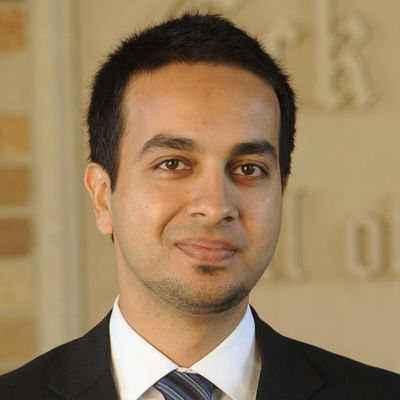Mustafa Ahmed

Mr. Ahmed received his B.A.-LL.B. degree from the Lahore University of Management and Sciences (LUMS) in 2010 and thereafter worked on public interest litigation concerning civil and political rights, as well as transactional and regulatory matters. He has also volunteered with a group of legal practitioners providing pro bono legal assistance to members of religious minorities and the poor in Karachi, Pakistan. His publications include “International Human Rights and Women in Muslim Countries” published by the LUMS Student Law Review, and the Pakistan chapter of a publication titled “Cartels, Enforcement, Appeals & Damages Actions” published by the Global Legal Insights. Mr. Ahmed was selected for the prestigious 2013-2014 Fulbright Foreign Student Program.
“This combination of theoretically grounded academic learning and practical knowledge will go a long way in helping me become a more effective lawyer..”
How did you first become interested in human rights law?
My interest in law, and more specifically human rights law, emerged when I was pursuing my undergraduate degree at the Lahore University of Management Sciences in Pakistan. At that time the judiciary in Pakistan was undergoing a particularly tumultuous period and was engaged in a bitter confrontation with a military dictator - a dictator responsible for abrogating virtually all of the constitutionally protected freedoms of the people. It was a fascinating time to be a student at LUMS, since the student and faculty movement resisting these incursions was extremely active and played a significant role in ousting the military dictator and restoring constitutional freedoms.I was able to develop a close relationship with several students and law faculty – including an alumnus of Notre Dame -- who were also staunch human rights advocates. During this time I became particularly interested in some of the human rights causes they were advocating.
From what or whom have you drawn inspiration in your work as a human rights lawyer?
My inspiration has mostly been from the higher judiciary in Pakistan. In recent years the higher judiciary has not only zealously safeguarded the independence of the judiciary but also actively advocated for several crucial human rights issues in Pakistan. The judiciary has made efforts to advocate for human rights causes such as the protection of religious minorities and the right of freedom despite staunch opposition from conservative elements. As a result, members of the judiciary have recently also been the target of terrorist attacks. It is my hope that the judiciary can continue on this course unfettered and remedy some of the wrongs committed in the past.
In addition, a great inspiration for me has been the informal group of lawyers I was involved with in Pakistan, who work to provide pro bono legal representation to the underprivileged and members of religious minorities. These individuals worked anonymously and with no financial incentive to protect the human rights interests of the underprivileged and targeted.
What issues do you feel most determined to address as a human rights lawyer?
As a human rights lawyer I wish to address the lack of a domestic framework for the equal protection and representation of religious minorities in Pakistan. Another closely linked issue I wish to work toward is freedom of expression in Pakistan.
What obstacles do you perceive as the most challenging in your work?
Pakistan is a difficult place to freely advocate for some essential international human rights causes. I feel it will be particularly challenging to work on some of these causes in a manner that is compatible with and acceptable to the cultural and social landscape of Pakistan. The issue of the freedom of speech is particularly challenging in the Pakistan context given the stringent blasphemy law provisions in place.
Why did you decide to study human rights at Notre Dame? How has the experience been?
The University of Notre Dame was a natural choice for me. I wished to attend an intensive graduate degree program with a specific focus on international human rights. I also wished to be in a world-class program with a small class size.
My experience at Notre Dame has so far been extremely fulfilling. Not only have I been able to benefit greatly from the direct interaction with prestigious faculty members, but I have also been able to forge close friendships with human rights lawyers and advocates from around the world. I have been fortunate enough to work closely with faculty members, all of whom are world-renowned experts in their own diverse and extremely specialized areas of research.
How will an LL.M. education from Notre Dame allow you to be a more effective human rights lawyer?
The LL.M. has so far equipped me with in-depth knowledge and understanding of the international human rights sources, norms and workings. In addition, I have been able to undertake my own academic research on issues pertaining to Pakistan in a comparative manner. This has been supplemented by more practical and hands-on learning related to human rights advocacy and litigation. This combination of theoretically grounded academic learning and practical knowledge will go a long way in helping me become a more effective lawyer.